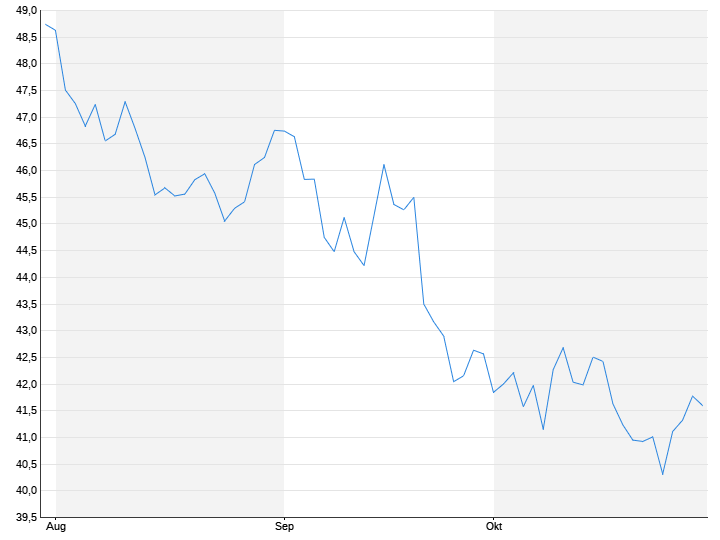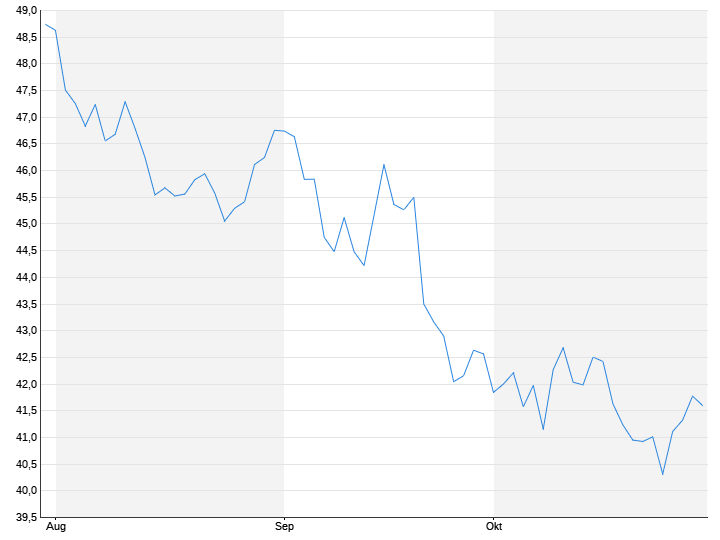Group reports quarterly loss
BASF figures fall short of expectations
October 31, 2023, 8:40 a.m
Listen to article
This audio version was artificially generated. More info | Send feedback
The chemical industry is currently in a deep crisis and is suffering from weak demand. BASF is also clearly feeling this. The top management is relying on a savings program and is modest in its goals for the financial year.
Lower prices and a significant decline in demand are weighing on BASF. After a slump in the third quarter, the chemical company now expects sales and earnings to be at the lower end of the previous forecast range. “Sales volumes in all customer industries were significantly lower than in the same quarter last year – with one exception: the automotive industry,” said CEO Martin Brudermüller.

From July to September, adjusted operating profit (EBIT) fell by a good 57 percent to 575 million euros. Analysts had expected an average of 601 million euros. Sales fell by more than 28 percent to 15.7 billion euros. The bottom line is that BASF also posted a loss of 249 million euros after a profit of 909 million euros a year ago due to burdens associated with its investment in the oil and gas company Wintershall Dea, which recorded a loss of over half a billion euros in the quarter.
BASF expects production in the chemical industry to further stabilize in the fourth quarter. However, the outlook remains extremely uncertain. In particular, rising raw material prices could put a strain on demand and margins. BASF now only sees the lower end of its targets within reach, which envisage sales between 73 and 76 billion euros and adjusted earnings between 4.0 and 4.4 billion. In 2022, BASF had sales of 87.3 billion euros and achieved a result of 6.9 billion euros.
But the chemical industry is now in a deep crisis and is suffering from weak demand. CEO Brudermüller had already announced a new austerity program in February, which would result in the loss of 2,600 jobs worldwide. Several energy-intensive systems at the main plant in Ludwigshafen are to be closed – this will affect a further 700 jobs in production.
Outside of production, BASF is now targeting higher annual cost savings than announced at the beginning of the year. The total savings from the end of 2026 will be around 1.1 billion euros annually, slightly higher than initially expected – so far the costs should be around one billion less from then on.
